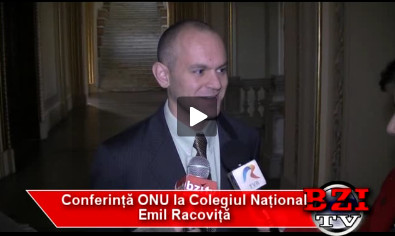"Oh my God! What happened here? Look at all the blood!" exclaimed Sarah.
"Oh, that?" answered ten year old Mădălina cheerily. "Grandma just killed a chicken for dinner. After you help clean it, he'll kill a couple of rabbits for tomorrow. Theron, want to watch? Don't forget your camera!"
Welcome to the Romanian countryside! Sarah and I spent the weekend in with our
friends, Lucia and Cristi, and their families for a hram in the village of
Lunca Moldovei. I'm still not quite sure what "hram" means, but from my experience it's a lot of cooking, eating, drinking, dancing and conversing (in Romanian of course).
 |
| Grandma |
As for the animal slaughtering, I consider this an easing into Christmas, where the tradition is to slaughter and roast a full size pig. I hear that the pig is going to be enormous. Don't forget Easter either, where we'll be eating fresh mutton (sheep) and goat.
This weekend we heard that you should not participate in the killing of an animal if you're going to be upset by it. This isn't for your benefit, but for the animal's. According to Romanians, your sadness will prolong the agony and death of the animal. Many members of the family have never even seen a chicken killed - they have always made sure they're somewhere else when it happens.
One of the coolest things about helping to clean the chicken was that there were eggs in there! There was one ready to be laid, with a hard shell. That one was taken out to fry up for dinner. There were a bunch of other ones in various stages of "doneness." They were bright red and soft, as though they were made of blood. I was pretty surprised to find that we just left them attached to the carcass when we threw it into the soup. We also tossed in the head (minus the beak), liver, neck, feet, heart, and stomach (aka gizzard). I was lucky enough not to find a chicken head in my soup, but I did get a heart and part of the gizzard. Sorry for the joke, but it really did taste like chicken!
As promised, we ate all four of the rabbits the next day. Lucia's brother, Vali, seasoned them and roasted them on a rotisserie over an open fire. All table manners disappeared when the rabbits were ready. A hoard of people literally tore off chunks with their fingers, swore at the heat of the meat, and smiled from ear to ear when they finally got a taste.
We cooked all of the food in a tiny room separate from the house, which they called the kitchen. The kitchen had no running water in it, even though there was running water in the house. Even though it was called the kitchen there was a bed in there, where people came to chit chat or to rest between some cooking task. Since the door was constantly being opened and closed, everyone was clothed in tons of layers and stocking caps while they cooked.
 |
| Sarah Bundled Up in the Kitchen |
Everything is cooked on a huge wood stove, called a soba. There was a metal plate right above the fire where you could add or remove rings to expose a pot directly to the flames. I think this helped to regulate the temperature on the food. Despite the primitive way to regulate the temperature, I never saw any of the food burn, whereas we burn stuff on our gas stove at home pretty much daily.
There was also a huge ceramic tile section on the soba that warmed the room. Many of the Peace Corps volunteers here use a soba to heat their homes. As for us, we just turn a knob and our radiators get hot. Posh Corps!
We learned a few subtleties of the language while we were there. For example, to get a cat out of the room you yell "câț" (which sounds like a mixture between "cuts" and "kits", and you have to really pronounce that last 's' like cutssss). But to get a chicken out of the room you yell "huș" (which sounds like "whoosh"). There's another word to get a dog out, but I liked the dog so I didn't use it much, and forgot what it was! There are also three completely different words to get these animals to come to you. I'm almost positive these are specific to Moldova. What a language!
 |
| Drumul cu Ceață |
The weekend was exhausting. And absolutely fantastic. This really is the kind of experience that we dreamed of when we decided to join the Peace Corps way back when. We're still learning new things about the culture, the language and the people of Romania every day, and we've still got almost two years to go. Who knows what treasures we'll discover!




